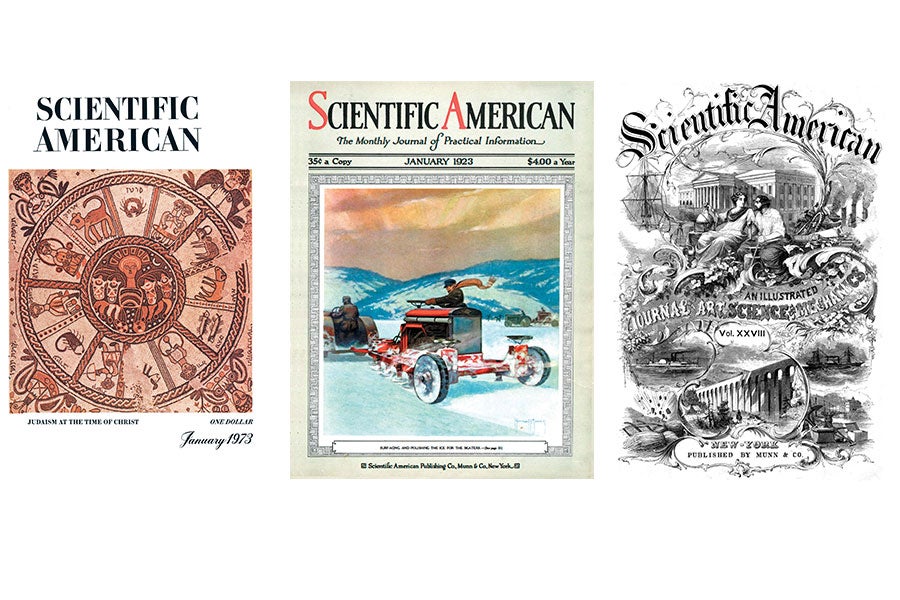1973
Hydrogen Power
“The basic dilemma represented by what has been termed the ‘world energy crisis’ can be simply stated: the earth’s nonrenewable fossil-fuel reserves will inevitably be exhausted, and in any event the natural environment of the earth cannot readily assimilate the byproducts of fossil-fuel consumption at much higher rates without suffering unacceptable levels of pollution. Major energy-consumption categories as transportation, space heating and heavy industrial processes are primarily supplied with fossil-fuel energy. If the ‘energy gap’ of the future is to be filled with nuclear power in the form of electricity, then the U.S. will have gone a long way toward becoming an ‘all-electric economy.’ A case can be made for utilizing the nuclear energy indirectly to produce a synthetic secondary fuel that would be delivered more cheaply and would be easier to use than electricity in many large-scale applications: hydrogen gas.”
Classified Universities
“Although the volume of secret Government research conducted in U.S. universities has declined sharply in the past decade, in part because of protests by students and faculties, a number of large institutions, chiefly state universities, continue to undertake classified projects. In fiscal year 1972 the Department of Defense has at least 29 classified contracts with universities, not counting contracts for work done at off-campus facilities. Of the contracts, 12 are with two institutions: the University of Texas and the University of Michigan.”
1923
Cheerful Tax Givers
“At Thebes, the ancient capital of Upper Egypt, archaeologists from Pennsylvania University have found demotic, or common-language, papyri that fill a gap in history from B.C. 309 to 246. This period includes the reign of Ptolemy Philadelphus, who was so successful in levying heavy taxes with a minimum of injury and dissatisfaction. As the manuscripts deal mainly with financial affairs, our own Ptolemies may perhaps learn from them how to create in us a nation of cheerful givers.”
Heating with Shale Oil
“From Sweden comes the report that peat briquettes, which have been impregnated with shale oil, make a very good substitute for coal. The process of impregnation consists merely in mixing the powdered peat with 10 percent by weight of shale oil and then briquetting. The price of such briquettes is stated to be one-half that of anthracite coal.”
1873
Sewing Machine Monopoly
“The Sewing Machine Ring, composed of the Singer, Howe, Grover & Baker and Wheeler & Wilson Companies, failed to induce our last Congress to sanction their modest attempt to fasten their overgrown and unjust monopoly for another seven years. Consequently their efforts are to be redoubled, and whatever influence, political or pecuniary, that can be brought to bear will be unhesitatingly wielded during the coming spring in one last grand endeavor to force the job through the Forty-second Congress. The patent, which has already expired and on which a third term is asked, is for the ‘feed’ motion. The owners will, if the present measure be passed, again rule the entire sewing machine trade. Thousands of inventors, who have devised improvements of great practical value, are subject to the mercy of this Ring, which may drive them from the market and deprive the public of as good machines at cheaper rates.”
Alcohol from Moss
“In the northern governments of Russia, large quantities of alcohol are produced from the mosses and lichens growing there in enormous quantities. This new industry originated in Sweden, and was subsequently introduced in Finland. Several large distilleries exhibited such alcohol at the recent industrial exposition in Moscow, where German, French and English manufacturers praised its quality highly.”

Stay connected with us on social media platform for instant update click here to join our Twitter, & Facebook
We are now on Telegram. Click here to join our channel (@TechiUpdate) and stay updated with the latest Technology headlines.
For all the latest For News Update Click Here
